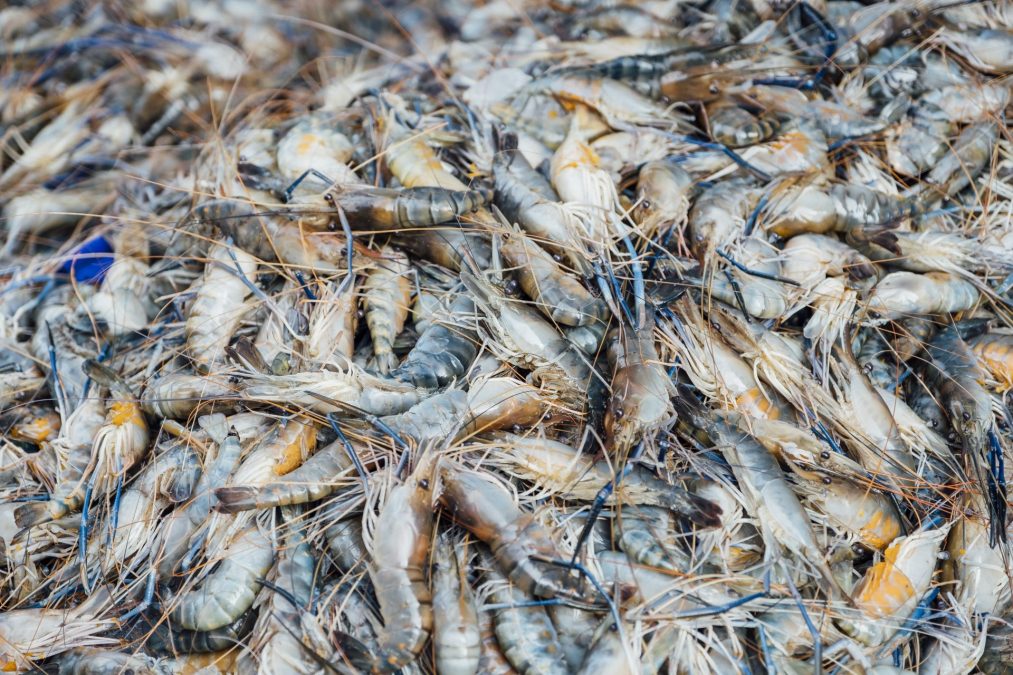
Celebrating Our Hometown Heroes
July 2, 2021
Oil Hits Highest Marks In Last Few Years As Demand Rises
July 2, 2021July always means shrimp to me. It’s like the equinox between seasons here in PoV country, when the brown shrimp season is waning and the white shrimp season is soon to rise. Few trawl boats are docked on the bayouside, which means they’re all out working. Roadside stands all have plenty “frash shrimps” to sell. Every now and then you can see people on their carports breaking heads from an ice chest and tossing headless tails into a bucket. And inside supermarkets, even the Zatarain’s ether seems refreshed from the peak of crawfish season.
My Doucet grandpa was part of the great shrimp trawling tradition here in and along the lower reaches of the bayous. He was renowned as the best packer in town. Not a Green Bay packer, mind you, but more like a Caminada Bay packer. (Come to think of it, that bay is usually green as well.) In his day, a packer was also known as an “iceman,” and an iceman often worked in the hull of a large “ice boat” that collected catches of smaller boats and packed those catches in ice. But icing was an art for Papére. Working in the ice boat hull, he would spread a boatload of shrimp in a thin layer and then cover it with a thin layer of ice. The next boat’s catch would be loaded on top and spread, and then he’d cover it with another layer of ice, building a sort of Doberge cake made with shrimp and ice instead of cake and pudding. It’s said that he never lost a shrimp during all the seasons in the hull of that boat.
The proud day eventually came for Papére when he could afford his own boat. And he bought a big one. We have an old family photo of him proudly standing at the bow right above the name “China Clipper.” That was the name given by the first owner—the one who burned the engine. Fortunately, Papére knew how to overhaul engines, and fortunately his brother owned a supply store. Another brother made trawl boards and nets. Later than sooner, Papère was off on the shrimp-roads, atop the deck and at the wheel and no longer in a damp and smelly hull.
The thing about shrimping, especially back in the day, is that sometimes you need some luck to find the shrimp. And sometimes you need more luck to keep your overhauled engine running. And then you need luck to get a good price for your catch and make some money to support your family. Unfortunately, the boat didn’t cooperate with Papére, and neither did the shrimp. After a brief but proud time, he bid one tradition adieu and welcomed a new one—working for Texaco like nearly everyone else in town.
Finding and catching shrimp was a challenge for Papére and other coastal trawlers of the day. But it’s not so for others around the world. You can find shrimp even in the hottest place on earth—the “Desert of Emptiness” in Iran, where temps can approach 160 degrees. On rare occasions when it rains there, and the residual ponds become teeming with the shrimp Phallocryptus fahimii arising from decades-old eggs. Though these ponds will dry in a few hours or a few days, that’s long enough for the desert shrimp to frolic and lay more eggs that’ll settle in the sand to await the next rain, which may come in another 10 years. And further east across the globe, if you put a net along certain watersides in Thailand, shrimp will scurry right into it. Schools of the shrimp Macrobrachium dienbienphuense will avidly avoid strong water currents and parade across rocks and grasses along the waterside until they find calmer waves. They’ve actually become a tourist attraction. It’s so easy there that it seems unfair compared to the hard work of our bayou trawlers here.
Now, neither of those shrimp populations are likely large enough to sustain a mass market, and it’s not even known if the locals eat them. But “That don’t matter,” as Papére would say, “If you can catch it, you can cook it!” I imagine how easy trawling might have been down here on the bayous if you could find shrimp on land and if they would walk into your trawl net. The iceman never avoided hard work but he may have been less interested in making money than simply living the tradition he learned from his own father. If shrimping were as easy as it might be in Iran and Thailand, he might never have given up the boat and worked in the oilfield, where he earned a steady paycheck for the first time in his life, and then neither would my dad, and then my generation might never have afforded to go to college. In a way, trawling worked out after all. And I believe Papére knew it would be so.
I hope he would be proud to know how I’ve become part of the great tradition. No, I’ve never trawled for shrimp, but I have studied their DNA to learn their genetic secrets. That’s kinda like trawling except it’s for genes. To extract DNA from a shrimp, you use the tail. But first you keep it on ice until you break the head and peel away the shell. Sound familiar, Papére?







